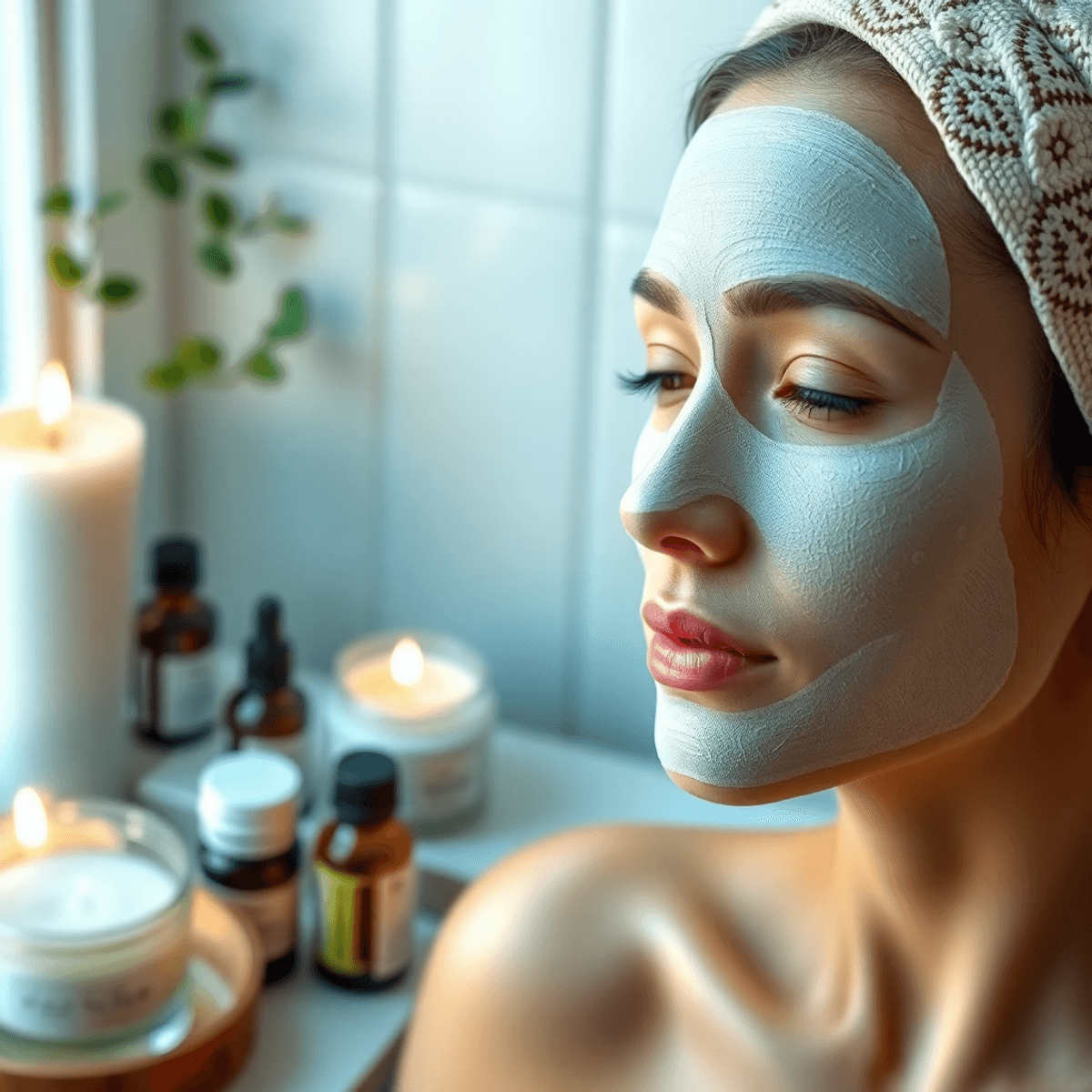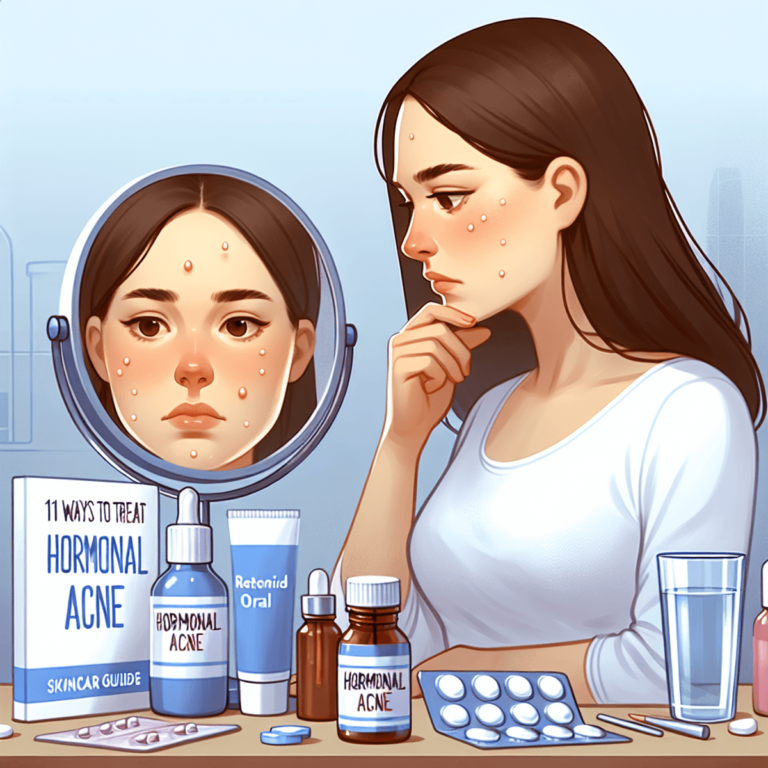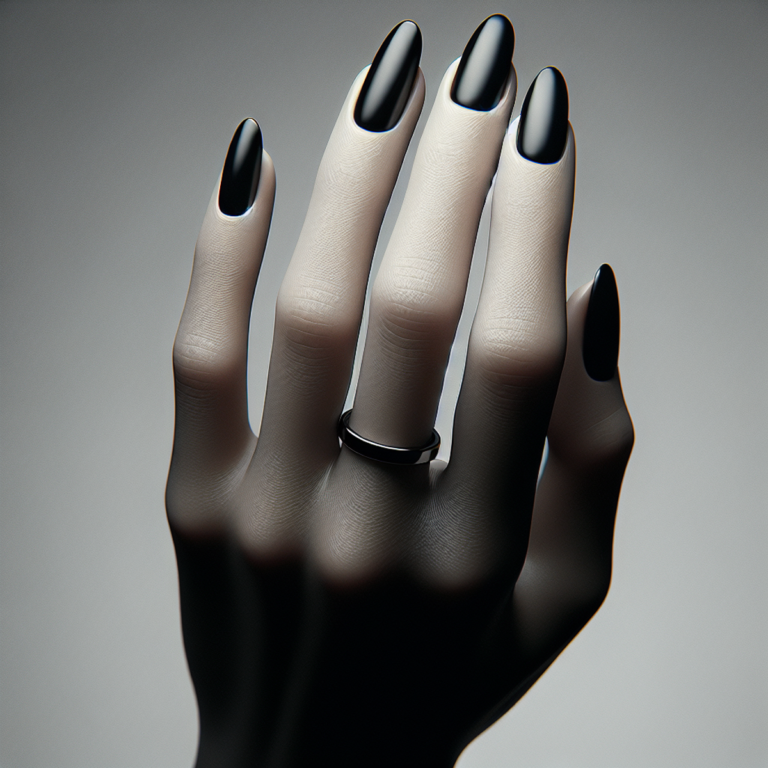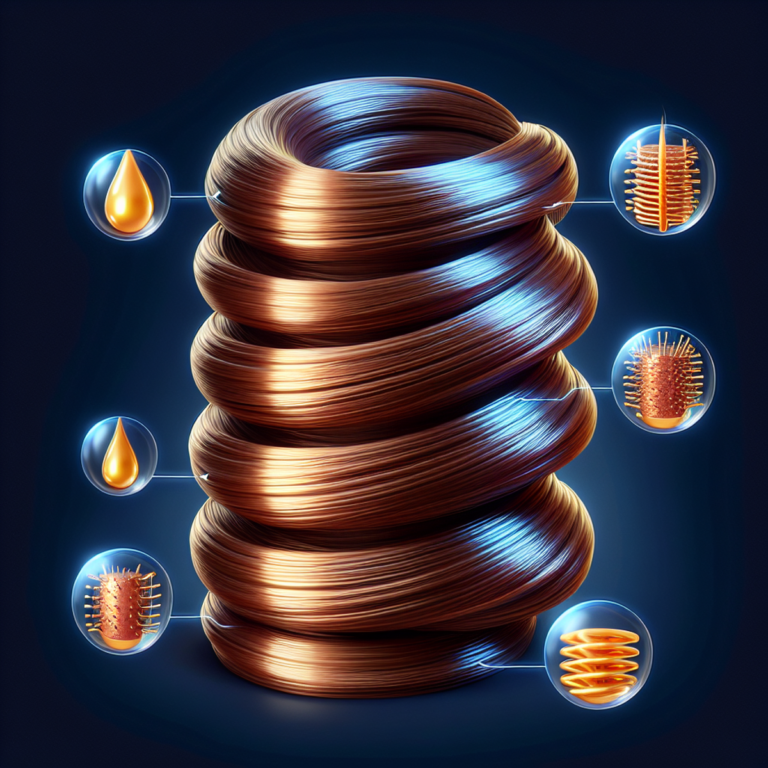How to deal with stress acne, according to experts

Introduction
Stress acne is a common skin issue caused by stress, anxiety, and pressure. It not only affects the health of your skin but also your overall well-being. Unlike other types of acne, stress acne is characterized by nodules or inflammatory papules and is caused by higher levels of cortisol and inflammation. These breakouts can worsen existing skin conditions such as eczema and psoriasis, making them harder to manage.
Knowing how to handle stress acne is essential for anyone who wants to keep their skin healthy. This article offers expert advice on effective methods for managing acne, including tips on how to get rid of pimples overnight and how to clear pimples permanently. Taking care of your skin is important because it greatly impacts your confidence and self-esteem.
In this guide, you’ll find:
- Expert-recommended treatments to manage stress acne.
- Lifestyle changes that can help prevent future breakouts.
- Professional advice on when and how to seek treatment.
Join us as we explore practical solutions for how to stop getting pimples and how to remove pimples overnight. Discover how a holistic approach can lead to clearer skin and prevent stress-induced breakouts from affecting your life.
Understanding the Link Between Stress and Acne
Stress has a profound effect on your skin, primarily through the action of cortisol, often referred to as the “stress hormone.” Cortisol plays a crucial role in skin health by influencing various functions, including inflammation and sebaceous gland activity. When you’re stressed, your body releases more cortisol, which can worsen acne by increasing oil production.
How Cortisol Affects Skin Health
- Inflammation: Elevated cortisol levels lead to increased inflammation, a key factor in the development of stress acne. This inflammation can worsen existing skin conditions such as eczema and psoriasis, making breakouts more pronounced.
- Sebaceous Gland Activity: Cortisol stimulates these glands to produce excess sebum or oil. This overproduction leads to clogged pores, providing an ideal environment for bacteria to thrive, thus causing pimples and blackheads.
Understanding this connection helps you learn how to get rid of breakouts and how to stop breakouts effectively. Addressing the root cause—stress—can be pivotal in managing acne.
Strategies to Manage Sebum Production
- To remove pimples naturally and permanently, consider lifestyle changes that reduce stress. Techniques like meditation and regular exercise can help lower cortisol levels.
- For immediate relief, learning how to reduce pimple redness in 5 minutes can be beneficial. Applying ice or using anti-inflammatory creams may provide quick solutions.
Long-Term Solutions for Persistent Acne
For those struggling with stubborn spots like back pimples or deep pimples, utilizing treatments like salicylic acid might be effective. Additionally, understanding how to remove pimple marks and how to get rid of pimple marks involves consistent skincare routines using products designed for sensitive skin.
When dealing with issues such as blackheads and whiteheads, knowing how to remove blackheads and whiteheads permanently requires a combination of exfoliation techniques and non-comedogenic products. These strategies not only address existing acne but also prevent future outbreaks by keeping sebaceous gland activity under control.
By comprehending how stress impacts your skin at a hormonal level, you can take proactive steps towards achieving clearer skin while minimizing the impact of stress-induced acne.
Identifying the Causes and Symptoms of Stress Acne
Stress acne is a complex condition, often made worse by factors like anxiety and hormonal changes. When your body feels stressed, it releases hormones such as cortisol that can cause the skin to produce more oil. These hormonal changes are a major factor behind the development of acne, especially during stressful times.
Hormonal Changes and Their Effects
- Cortisol Surge: When stress levels increase, cortisol levels also rise, causing the sebaceous glands to produce more oil. This excess oil can block pores, leading to acne outbreaks.
- Hormonal Imbalance: Stress can disrupt the delicate balance of hormones in your body, which may result in more frequent breakouts. This is especially noticeable in teenagers whose bodies are already going through significant hormonal changes.
For those struggling with how to get rid of cystic pimples or how to prevent pimples on the face forever, understanding these hormonal triggers is crucial.
The Impact of Immune Function
Stress not only affects hormones but also impacts your skin’s immune response. A weakened immune system makes your skin more susceptible to inflammation and infection:
- Increased Inflammation: Stress-induced inflammation can worsen existing skin conditions such as eczema and psoriasis while making skin more prone to breakouts.
- Weakened Defense: As stress impairs immune function, the skin becomes less effective at fighting off acne-causing bacteria.
Those dealing with issues like how to get rid of bumps on arms or how to treat tiny bumps on the face may find this aspect particularly relevant.
Recognizing Stress Acne Symptoms
Identifying the symptoms of stress acne is essential for effective management:
- Nodules and Papules: Unlike common acne lesions, stress acne often appears as deep nodules or inflammatory papules that can be painful.
- Localized Outbreaks: Breakouts may occur suddenly in areas like the forehead or chin, leading to concerns such as how to get rid of bumps on forehead or how to get rid of pimples on forehead.
Understanding these specific symptoms helps differentiate stress-related acne from other types and informs treatment options.
For individuals curious about how to remove dark spots caused by pimples or how to get rid of teenage pimples, recognizing these distinctive characteristics is a valuable first step.
Exploring effective solutions tailored for these causes and symptoms enables better management strategies for those facing stress-induced breakouts.
Expert-Recommended Strategies for Managing Stress Acne
Dealing with stress acne effectively often involves a combination of topical treatments and, in some cases, oral medications. Understanding what each treatment offers can help you make informed decisions about how to manage and reduce acne breakouts.
Topical Treatments
Dermatologists often recommend topical treatments as the first line of defense against stress acne. These treatments are applied directly to the skin to target the affected areas:
- Salicylic Acid: Known for its ability to exfoliate the skin, salicylic acid helps unclog pores and reduce inflammation. This ingredient is commonly found in cleansers and spot treatments. For those wondering how to get rid of zits fast, salicylic acid may be an effective solution.
- Benzoyl Peroxide: This powerful antimicrobial agent reduces bacteria on the skin’s surface and helps dry out existing pimples. It’s particularly useful if you’re looking for ways to stop pimples or reduce pimples. Available in various strengths, benzoyl peroxide can be found in both over-the-counter and prescription products.
- Retinoids: Retinoids promote cell turnover and prevent clogged pores. While they are highly effective, they may cause initial irritation. It’s crucial to follow your dermatologist’s guidance on how to incorporate retinoids into your routine.
These topical solutions not only address active breakouts but also help prevent future occurrences. For those curious about how to get rid of pimple scars, consistent use of retinoids might offer gradual improvement over time.
Oral Medications
For persistent or severe cases, oral medications may be necessary. Consulting a dermatologist is essential before starting any medication regimen:
- Antibiotics: Oral antibiotics can reduce bacteria and inflammation from within. They are often prescribed for short-term use alongside topical treatments.
- Hormonal Treatments: In cases where hormonal fluctuations contribute significantly to acne flare-ups, medications like birth control pills or anti-androgens may be recommended.
These oral options should be considered when topical treatments alone do not suffice. A dermatologist will evaluate your specific needs and develop a tailored treatment plan.
By combining these expert-recommended strategies, you can effectively manage stress acne while minimizing potential side effects. Understanding how to integrate these treatments into your skincare routine creates a solid foundation for clearer skin.
This approach not only addresses current breakouts but also lays the groundwork for preventing future issues, answering questions like how to reduce pimples or how to get rid of teenage pimples naturally at home with professional guidance.
Lifestyle Changes to Complement Your Acne Treatment Plan
Addressing stress acne involves more than just topical treatments. Integrating lifestyle changes can significantly enhance the effectiveness of your acne management plan.
Stress Reduction Techniques
Focusing on stress reduction techniques such as meditation and mindfulness can provide substantial benefits. These practices not only help in calming the mind but also regulate hormone levels, reducing the likelihood of acne flare-ups. Setting aside even 10 minutes a day for meditation or deep breathing exercises can make a noticeable difference.
Importance of Sleep
Regular sleep patterns are equally crucial. Sleep is when your body repairs itself, including skin cells. Aiming for 7-9 hours of quality sleep each night can support skin health and reduce stress-induced breakouts. If you’re wondering how to get rid of under the skin pimples or how to shrink a cystic pimple overnight, maintaining a consistent sleep schedule could be part of the solution.
Skincare Routine for Sensitive Skin
Building a skincare routine tailored specifically for sensitive skin is another key factor in managing stress acne. Consider adopting a more relaxing skincare routine which includes gentle cleansers that do not strip away natural oils, thereby preventing irritation and inflammation. Look for soothing moisturizers containing ingredients like hyaluronic acid or aloe vera, which hydrate without clogging pores.
“A consistent routine helps manage how to get rid of tiny bumps on face quickly and how to treat blackheads effectively.”
Consider incorporating products with active ingredients like salicylic acid or benzoyl peroxide into your regimen for targeted treatment of problem areas. For those pesky pimples on specific areas like the forehead or chin, hydrating masks and spot treatments can work wonders. You might be curious about how to get rid of pimples on forehead overnight or how to get rid of chin pimples overnight; using hydrocolloid patches infused with tea tree oil can be effective options.
When dealing with more stubborn issues like how to remove pimple scars, seeking out products with retinoids or Vitamin C serums can help improve skin texture and tone over time.
For those concerned with specific areas such as how to get rid of pimples on pubic area male, gentle exfoliation and proper hydration are fundamental steps.
Combining these lifestyle adjustments with your prescribed treatments can accelerate recovery and minimize future breakouts. Embracing a holistic approach not only addresses existing concerns but also sets the foundation for healthier skin moving forward.
Professional Treatments for Severe Cases of Stress Acne
Dealing with stress acne can sometimes require the expertise of a dermatologist, especially when lesions become severe or painful. These experts can offer advanced therapies to tackle stubborn breakouts and provide relief from discomfort.
When to Seek Professional Help
Severe cases often present as nodules or cysts that cause significant pain and distress. If over-the-counter treatments and lifestyle changes are not yielding results, it’s wise to schedule dermatologist visits. Persistent acne can lead to scarring; therefore, early intervention can prevent long-term skin damage.
Potential Treatments Offered by Dermatologists
Dermatologists have an array of treatments tailored for intense breakouts:
- Corticosteroid Injections: These are effective in reducing inflammation and minimizing large, painful cysts rapidly.
- Chemical Peels: These remove the top layer of skin, helping to clear blocked pores and improve the appearance of scars.
- Laser Therapy: This addresses both active acne and residual scarring by targeting deeper layers of the skin.
- Prescription Medications: Oral antibiotics or hormonal therapies might be recommended for those who struggle with persistent acne despite topical treatments.
Complementary Home Remedies
While professional treatments can provide immediate relief, integrating some home remedies may help alongside these procedures. To address how to get rid of spot scars or how to remove dark spots caused by pimples overnight, consider using natural ingredients such as:
- Aloe Vera: Known for its soothing properties, it can reduce inflammation and aid in healing.
- Tea Tree Oil: With antibacterial qualities, it helps in treating individual pimples naturally at home.
For those curious about how to get rid of bumps on the buttocks or little bumps on arms, maintaining proper hygiene and using exfoliating scrubs can be beneficial. Moreover, understanding how to remove a blackhead that won’t come out involves using gentle pressure with clean tools or consulting a dermatologist for safe extraction techniques.
Professional input is crucial for severe stress acne cases. With expert guidance, a combination of advanced therapies and strategic home care can yield significant improvements.
Long-Term Strategies for Preventing Stress Acne Recurrences
To maintain clear skin and prevent future breakouts, establishing consistent skincare habits is essential. Implementing effective prevention methods can help reduce the occurrence of stress acne, providing a foundation for healthier skin.
Skincare Habits to Integrate
- Use Non-Comedogenic Products: Selecting products labeled as non-comedogenic ensures they won’t clog pores, reducing the likelihood of developing acne. This is crucial for preventing new blemishes and maintaining a clear complexion.
- Gentle Cleansing Routine: Opt for mild cleansers that respect your skin’s natural barrier without stripping away essential oils. Look for creamy or hydrating formulations that cater to sensitive skin, aiding in the removal of excess oil and impurities.
- Avoid Excessive Touching of the Face: Frequent touching transfers bacteria and oils from your hands to your face, potentially leading to breakouts. Be mindful of this habit to minimize the risk of introducing irritants to your skin.
- Incorporate Targeted Treatments: Use treatments containing active ingredients like salicylic acid or benzoyl peroxide on problem areas to help manage breakout-prone regions effectively.
- Hydration and Moisturization: Keeping the skin properly hydrated with soothing moisturizers, possibly containing hyaluronic acid, helps maintain a balanced moisture level while avoiding irritation.
Quick Fixes for Emergencies
- How to Shrink a Pimple in Minutes: Applying ice wrapped in a clean cloth can temporarily reduce swelling and redness.
- How to Get Rid of Spots on Face Quickly: Hydrocolloid patches or spot treatments with tea tree oil can be useful for isolated blemishes.
Additional Tips
- Regular Exfoliation: Gentle exfoliation can help remove dead skin cells and prevent clogged pores, but should be done carefully to avoid irritation.
- Balanced Diet and Hydration: Adequate water intake and a balanced diet rich in antioxidants support overall skin health.
By embracing these long-term strategies, you address not only how to get rid of pimples on face but also how to stop pimples coming on face. These habits serve as an effective baseline for managing stress acne over time, ensuring fewer recurrences and promoting healthier skin resilience.
Conclusion: A Holistic Approach to Managing Stress Acne
Dealing with stress acne requires more than just using creams or ointments; it needs a complete plan that includes both skin care and mental health strategies. Integrating mental health is important because stress-related acne often indicates underlying emotional or psychological issues. It’s crucial to consult dermatologists for skin health, but don’t overlook the importance of seeking help from mental health experts.
To truly understand how to deal with stress acne, according to experts, consider combining effective treatments with lifestyle changes. This approach not only addresses the immediate concern of how to get rid of spots on face but also tackles long-term solutions such as how to stop pimples coming on face at home. Embrace methods like meditation and proper sleep hygiene alongside skincare routines tailored to sensitive skin.
Whether you’re looking for solutions on how to treat sudden face breakout or seeking ways for how to remove pimples permanently, remember that being patient and consistent is essential. Your journey might involve learning how to make pimples go away or understanding specific requirements like how to get rid of vaginal pimples. By taking a holistic approach, you empower yourself towards clearer skin and better overall well-being.
FAQs (Frequently Asked Questions)
What is stress acne and how does it affect overall well-being?
Stress acne is a type of acne that arises due to increased stress levels, which can lead to hormonal fluctuations and inflammation. It not only affects skin health but can also impact self-esteem and mental well-being.
How does cortisol contribute to the development of stress acne?
Cortisol, a stress hormone, increases oil production in the sebaceous glands. This excess oil can clog pores, leading to breakouts and exacerbating existing acne conditions.
What are some expert-recommended strategies for managing stress acne?
Experts suggest using topical treatments like salicylic acid and benzoyl peroxide. For persistent cases, oral medications may be considered after consulting with a dermatologist.
How can lifestyle changes help in preventing stress acne?
Incorporating stress reduction techniques such as meditation and maintaining a regular sleep schedule can significantly lower stress levels, thereby helping to prevent acne flare-ups. A tailored skincare routine with gentle products is also beneficial.
When should I seek professional help for my stress acne?
If you experience severe or painful lesions that do not respond to over-the-counter treatments, it’s advisable to consult a dermatologist for advanced therapies and personalized treatment options.
What long-term strategies can help prevent recurrences of stress acne?
Establishing consistent skincare habits, such as using non-comedogenic products and avoiding excessive touching of the face, can effectively reduce the likelihood of future breakouts.









